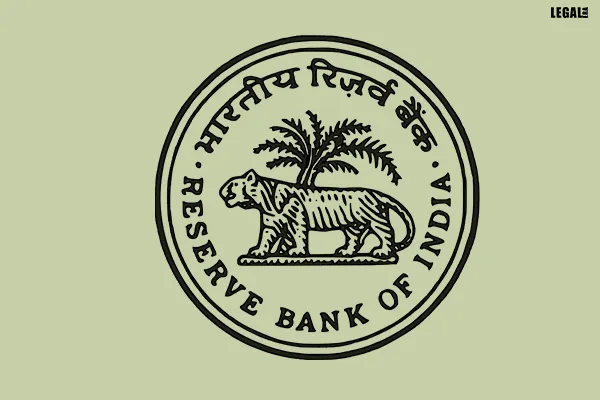Supreme Court expresses doubts in a 2015 judgement of RBI V/s Jayantilal Mistry
The Supreme Court expressed prima facie doubts about its 2015 judgment in the case Reserve Bank of India v Jayantilal N.;

Supreme Court expresses doubts in a 2015 judgement of RBI V/s Jayantilal Mistry
The Supreme Court expressed prima facie doubts about its 2015 judgment in the case Reserve Bank of India v Jayantilal N. Mistry which had held that the Reserve Bank of India was obliged to disclose defaulters list, inspection reports, annual statements etc., related to banks under the Right to Information Act.
The 2015 case failed to take into consideration the aspect of balancing the right to information and the right to privacy. The bench noted that privacy has been declared to be a fundamental right under Article 21 in a subsequent judgment delivered by a 9-judge bench in 2017 in the Puttaswamy case.
Holding so, the bench held as maintainable the writ petitions filed by various banks challenging the directions issued by the RBI seeking information from the banks relating to inspection reports, risk assessment reports and annual financial inspection reports.
It held that the writ petitions under Article 32 can be maintained to challenge the directions regardless of the Jayantilal Mistry case.
"In view of the judgment of this Court in the case of Jayantilal N. Mistry, the RBI is entitled to issue directions to the petitioners/Banks to disclose information even with regard to the individual customers of the Bank. In effect, it may adversely affect the individuals' fundamental right to privacy", the bench observed. Accordingly, the preliminary objection raised against the maintainability of the writ petitions were dismissed. The writ petitions will be heard on merits.
In 2021, a bench comprising Justices L Nageswara Rao and Vineet Saran (both judges since retired) had dismissed the miscellaneous applications filed by the banks seeking to recall the Jayantilal Mistry case holding that they were effectively seeking a review of the judgment under the guise of recall applications. However, the bench had reserved the right of the banks to seek other remedies in accordance with law. Following that, writ petitions under Article 32 were filed by several banks, including HDFC, Axis Bank, SBI, Kotak Mahindra Bank etc.
Advocate Prashant Bhushan, appearing for the applicants who sought the RTI information, contended that the writ petitions challenging an earlier judgment are not maintainable. He pointed out that the Supreme Court had in 2019, while considering contempt action against the RBI for non-compliance with the directions in the Jayantilal Mistry case, directed it to change its disclosure policy in tune with the court directions. He relied on Naresh Shridhar Mirajkar and others vs. State of Maharashtra and Anr and A.R. Antulay vs. R.S. Nayak and another precedents which held that a judgment of the Supreme Court cannot be corrected under Article 32.
Senior Advocates Rakesh Dwivedi, Mukul Rohatgi, K V Vishwanathan, Dushyant Dave, Jaideep Gupta, appearing for various banks, referred to the Puttaswamy case which held privacy to be a fundamental right. Invoking the maxim "ex debito justitia", it was argued that no party should suffer due to a mistake of the Court and that procedure should be seen as handmaidens of justice. It was further contended that private banks do not come under the purview of the RTI Act.
Court's view
Referring to the various precedents, the Court observed :
"A perusal of the judgments of this Court cited supra would reveal that it has been held that though the concept of finality of judgment has to be preserved, at the same time, the principle of ex debito justitiae cannot be given a go¬bye. If the Court finds that the earlier judgment does not lay down a correct position of law, it is always permissible for this Court to reconsider the same and if necessary, to refer it to a larger Bench".
Since there are concerns raised about violation of right to privacy, the only remedy available to the petitioners would be to approach the Court by way of writ petition under Article 32 of the Constitution of India for protection of the fundamental rights of their customers, who are citizens of India.
"Without expressing any final opinion, prima facie, we find that the judgment of this Court in the case of Jayantilal N. Mistry (supra) did not take into consideration the aspect of balancing the right to information and the right to privacy. The petitioners have challenged the action of the respondent¬RBI, vide which the RBI issued directions to the petitioners/Banks to disclose certain information, which according to the petitioners is not only contrary to the provisions as contained in the RTI Act, the RBI Act and the Banking Regulation Act, 1949, but also adversely affects the right to privacy of such Banks and their consumers. The RBI has issued such directions in view of the decision of this Court in the case of Jayantilal N. Mistry (supra) and Girish Mittal (supra). As such, the petitioners would have no other remedy than to approach this Court"
Observing so, the bench dismissed the preliminary objections.

